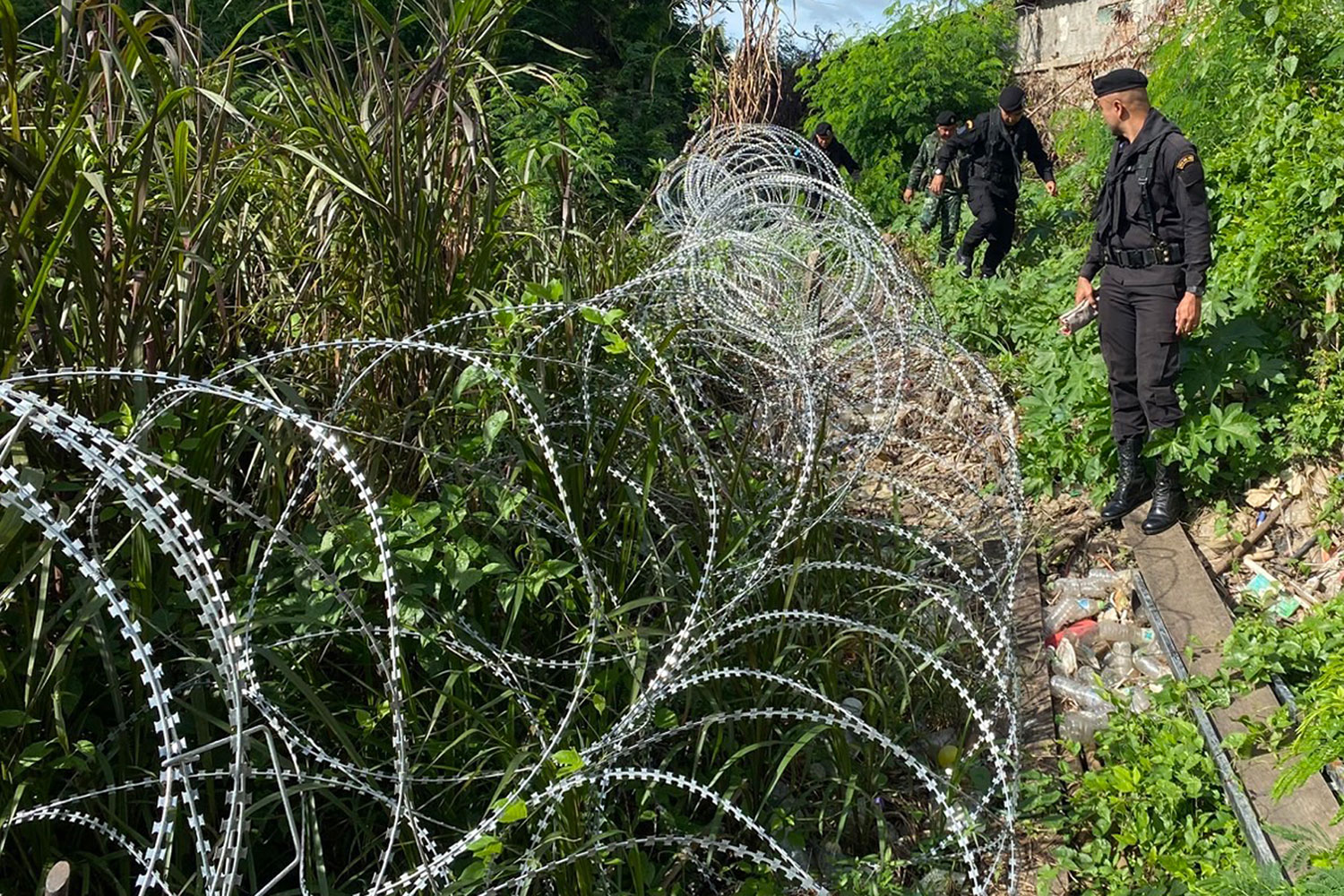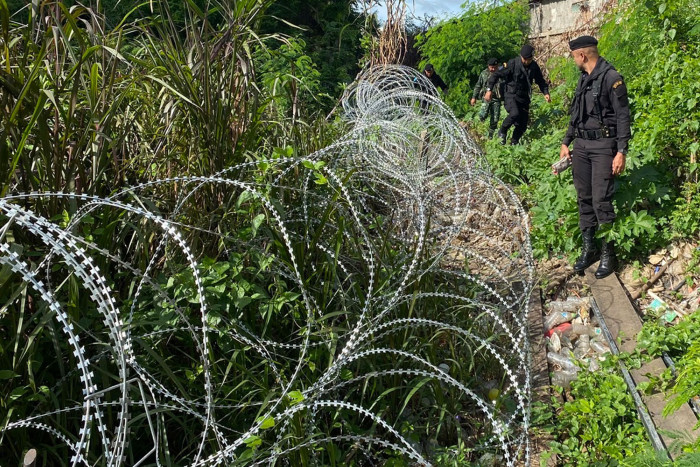Regulator orders operators to track SIM sales as government puts squeeze on scammers
PUBLISHED : 26 Jun 2025 at 17:41
Small
Medium
Large

Officers conduct a patrol along Cambodian border in Aranyaprathet district in Sa Kaeo province. (Photo: Sa Kaeo Public Relations Office)
Thailand’s telecom regulator has has ordered all Thai operators to stop providing broadband and mobile internet connections to Cambodia, while requiring reports of SIM card sales every 15 days.
The National Broadcasting and Telecommunications Commission (NBTC) said it had imposed the measures as part of the government’s drive to take down call centre scammers and cut cybercrime.
The main focus of the campaign is the border area around the Khlong Luek crossing in Aranyaprathet district of Sa Kaeo, opposite the Cambodian casino town of Poipet, said Trairat Viriyasirikul, the NBTC deputy secretary-general.
All data and voice communication would be cut off in areas near the border within 15 days, with services reduced or restricted in areas farther away, according to the regulator.
However, the NBTC said it was working on ways to ensure that Thais living near the border could still use their mobile phones. Operators are expected to deploy mobile SIM vehicles to ease any problems for their customers.
Cambodia earlier cut off internet connectivity from Thailand, but Thai private operators serving Cambodia continued to offer services as usual, Mr Trairat said.
Fourteen Thai companies offer broadband internet in the neighbouring country.
However, after a meeting on Thursday, regulators decided to order operators to cut off all signals to Cambodia.
Operators who wish to provide any service must produce evidence of the purpose and indicate the nature of the business involved. They must tell the regulator the bandwidth they will use, and evaluate whether there is any risk it could be used by scammers.
For Thai operators with branches in Cambodia, a separate transmission system will be put in place, in order to ensure their services are not affected by the signal cut, Mr Trairat said.
Every SIM card used in Cambodia requires the user to supply identification and purposes of use, and operators must submit updated reports on SIM card sales to the NBTC every 15 days.
Cybercrime drops after connectivity cut
Pol Gen Thatchai Pitaneelaboot, inspector-general of the Royal Thai Police, said the Thai government’s order to seal the Cambodian border and cut telecommunications has resulted in fewer cases of cybercrime.
Thailand is also preparing to seek prosecutions against the owners of two high-rise buildings in Poipet, believed to be the major bases of scammers.
“In the past, we barely received any cooperation from Cambodia to crack down on scams,” said Pol Maj Thatchai. “Cambodian police have not contacted us since the border tensions began.”
Further cooperation now depends on the border situation between the two countries, he added.
Thai police have been focusing their attention on Huione Group, a Cambodian financial firm, but they do not yet have enough evidence to pursue the case, Pol Gen Thatchai said.
The United States said in May that it was banning Huione Group from the US financial system, deeming it a “primary money laundering concern”.
Thai cyber police have said they found significant sums believed to come from online gambling and call centre scams were being channelled into Huione Group, according to local media reports.
Investigations are continuing, with authorities reportedly examining a potential connection to a nephew of Hun Sen as well.
